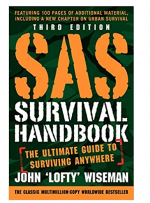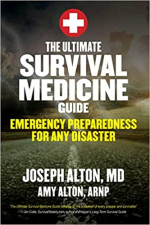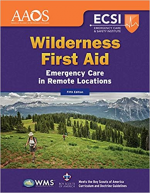Okay...this is for all you in the medical/first responder professions out there...
Over the years I have taken a number of First Aid and CPR related classes and courses. Some from the military, some from the Red Cross, and others from various jobs I had. Some of it was more advance than just "apply pressure." My Combat Life Save Course in the military actually had us do IVs on real people...and the training from the Marine Corps taught me how to treat a sucking chest wound. All of this training has one thing in common with each other...I don't remember a lick of it. Okay...I remember some things...but not much...and probably just enough to get sued.
I am looking through various courses and classes...American Red Cross, American Heart Association, National EMS Academy, and even our local colleges and universities for the possibility of an EMT course.
I'll put this out there...I am not interested in seeking out a profession as an EMT...but I would love to have that knowledge and to a lesser extent hold the certifications/licenses.
Anyway...I plan on doing all the First Aid/CPR refreshers to get up to date. But I would love to get more advanced training. I really don't want to spend the huge bucks to go through EMT schooling and the time commitment. But I think I would if that was the only option.
I guess what I am looking for is to see if the Cadre has knowledge of these courses? What is the best bang for my buck? While I understand that I am likely to only encounter situations that might require basic first aid and/or basic first aid...I would still like to be prepared in a situation that EMS takes a while to get to me or if I am in a situation/location that EMS can't get to me.
And before the professionals get all testy...in any of these situations my first action is to call 911. I do know this and would always call 911 in any of these situations.
Thoughts?
Over the years I have taken a number of First Aid and CPR related classes and courses. Some from the military, some from the Red Cross, and others from various jobs I had. Some of it was more advance than just "apply pressure." My Combat Life Save Course in the military actually had us do IVs on real people...and the training from the Marine Corps taught me how to treat a sucking chest wound. All of this training has one thing in common with each other...I don't remember a lick of it. Okay...I remember some things...but not much...and probably just enough to get sued.
I am looking through various courses and classes...American Red Cross, American Heart Association, National EMS Academy, and even our local colleges and universities for the possibility of an EMT course.
I'll put this out there...I am not interested in seeking out a profession as an EMT...but I would love to have that knowledge and to a lesser extent hold the certifications/licenses.
Anyway...I plan on doing all the First Aid/CPR refreshers to get up to date. But I would love to get more advanced training. I really don't want to spend the huge bucks to go through EMT schooling and the time commitment. But I think I would if that was the only option.
I guess what I am looking for is to see if the Cadre has knowledge of these courses? What is the best bang for my buck? While I understand that I am likely to only encounter situations that might require basic first aid and/or basic first aid...I would still like to be prepared in a situation that EMS takes a while to get to me or if I am in a situation/location that EMS can't get to me.
And before the professionals get all testy...in any of these situations my first action is to call 911. I do know this and would always call 911 in any of these situations.
Thoughts?






